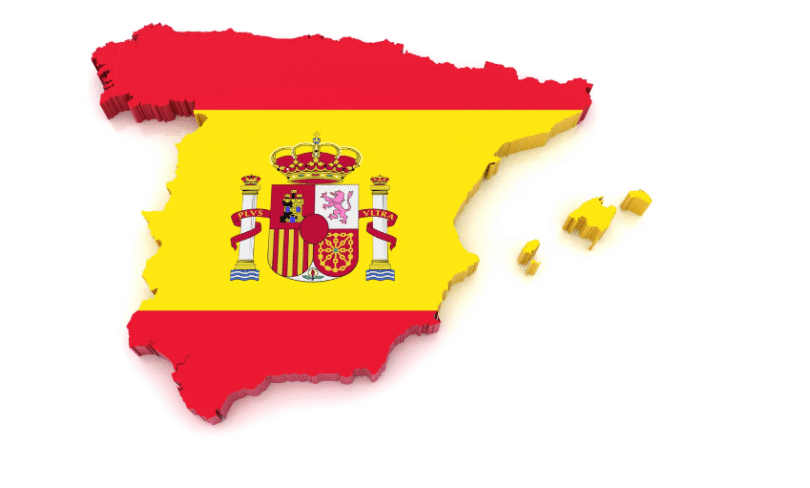Spain has been working hard to improve its immigration rules to match the needs of its people and economy. The country wants to include everyone, help the economy grow, and fill job gaps. To support this, Spain made some big changes to its immigration system in May 2025. These changes will update the laws and make things simpler for migrants and their families.
The immigration law changes in May 2025 are very important. They aim to cut down on paperwork and make it easier for families to reunite and find jobs. By loosening rules and allowing more people to apply, Spain hopes to bring in skilled workers from different backgrounds. These changes also aim to help immigrants feel part of Spanish society and build stronger communities.
This article explains the main changes that help families and people looking for jobs. It clearly describes the new permits, longer visa times, and easier ways to get legal status in Spain.
Simplified Family Immigration Policies
Spain’s new immigration changes focus on keeping families together. They make it easier for relatives of Spanish citizens and residents to come and stay. The process now has less paperwork and gives families more chances to live, work, and settle into life in Spain.
Introduction to Family-Focused Changes
Spain’s new immigration laws strongly support keeping families together. The changes offer clearer and easier ways for family members of Spanish citizens and residents to join them. The goal is to cut down on paperwork and help immigrant families feel happier and more connected in Spain.
New Five-Year Permit for Non-EU Relatives
One of the biggest changes is a new five-year short-term residence permit. It is meant for certain non-EU family members of Spanish citizens, such as partners, children under 26, and parents. People who qualify can get this permit more easily, giving them more stability and a safer stay in Spain. Most importantly, this permit also gives them the right to work in Spain without extra steps. This change makes Spain a better and more welcoming place for families who want to move.
Expanded Family Reunification for Non-EU Residents
Spain has also improved its family reunification rules for non-EU residents already living in the country. The new policy now accepts unmarried partners as long as they have lived together for at least one year or have a child together. These partners can now apply for reunification permits. The permits include the right to work and last as long as the main resident’s permit. This change makes renewals easier and helps families stay together more smoothly.
Impact on Family Integration and Social Cohesion
These new family immigration changes will help immigrants feel more included and connected in Spain. By letting family members live and work legally, the rules create stronger support systems and remove worry about the future. This makes it easier for families to take part in their communities and share their cultures. In the long run, the changes show Spain’s promise to build a more welcoming and united society.
Extended Job Seeker Visa Validity
Spain has several job seeker visa options to attract skilled workers from other countries and meet job market needs. These visas let qualified people come to Spain and look for work for a set amount of time. Each type of visa is meant for different groups of applicants and has its own rules and time limits.
Expansion of Visa Authenticity Period from 3 to 12 Months
One important change is that the main job seeker visa now lasts 12 months instead of 3. This gives people much more time to find a good job. With a longer visa, foreign job seekers can explore more options and apply for work without worrying about the visa ending too soon.
Eligibility Restrictions
This longer visa is only for certain groups of people. It includes those whose Spanish relatives lost their citizenship and people applying for jobs in approved industries. The change does not apply to other job seeker visas, like the one for recent graduates. This focused plan helps support key job sectors and people who already have strong connections to Spain.
Benefits of Longer Job Search Duration for Candidates and Employers
The longer job search time helps both job seekers and employers. Applicants now have more time to meet employers, go to interviews, and agree on job offers. This takes away the rush and helps them find better job matches. For employers, it means access to more skilled people and more time to choose the right ones. In the end, this change helps match the right people with the right jobs and makes it easier for them to join Spain’s workforce.
Implications for Travelers, Expats, and Employers
Spain’s new immigration rules offer big benefits for people who want to move there, as well as for employers and the economy. These changes show that Spain is moving toward a more open, flexible, and forward-thinking system.
Easier Pathways for Relocation and Family Reunification
Spain’s new immigration policies make it easier and faster for people to move and bring their families. Travelers and those planning to live in Spain now face simpler steps, more chances to qualify, and better legal protection. Families can reunite more easily, and their relatives can live and work in Spain, helping them settle for the long term. These changes cut down on paperwork and make Spain a more welcoming place for those looking for a stable and better life.
Expanded Labor Pool and Flexible Employment Options for Employers
For employers, the new rules offer access to a larger and more flexible group of workers. Job seekers now have more time to find work, and family members can work too. People are also allowed to take on side jobs, which adds even more flexibility. These changes help businesses find the right skills faster and adjust to market needs while still following the law.
Contribution to Spain’s Economic Growth and Cultural Diversity
These changes help Spain grow its economy and celebrate cultural diversity. By allowing more foreign workers, families, and previously undocumented migrants to join the legal workforce, Spain adds strength to its labor force and tax system. More international residents also bring new ideas and cultures, making communities richer and more connected. All of this shows that Spain is working toward a more open, modern, and inclusive future.
Frequently Asked Questions
Who qualifies for the new five-year family residence permit?
This permit is available to non-EU relatives of Spanish citizens, including partners, children under the age of 26, and parents. Eligible applicants will also receive automatic work rights upon approval.
Do de facto spouses qualify for family reunification under the new law?
Yes. De facto spouses may qualify if they have lived together for at least one year or have a child together, even without cohabitation.
How long can job seekers now stay in Spain under the new visa changes?
Under the updated rules, one of the job seeker visa options now allows qualified applicants to remain in Spain for up to 12 months, an increase from the previous three-month validity.
Can family members with residence permits work in Spain immediately?
Yes. One of the key benefits of the new five-year permit is that it automatically grants the right to work, making it easier for families to integrate and contribute to the Spanish economy.
Conclusion
For people and families looking for better opportunities and a good life, Spain now has a more friendly and helpful immigration system. Relatives can work right away, job seekers get more time to find work, and it’s easier to get legal residency. These changes make Spain a great place for anyone hoping to start a new life in Europe.
As more people move to Spain and take part in local life, the country will gain long-term social and economic benefits. This will help Spain stay strong, open, and ready to face future challenges.






